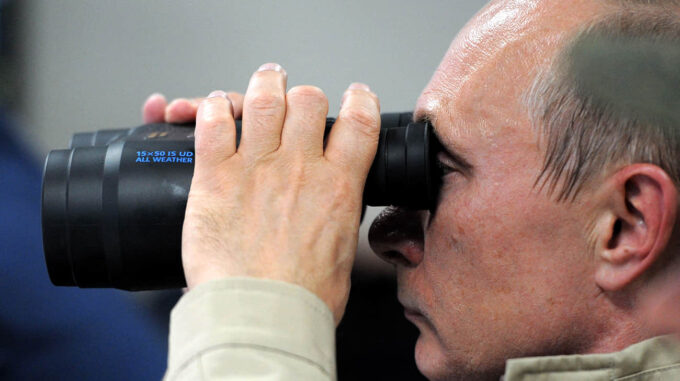According to Western intelligence services, Vladimir Putin may have shifted his military objectives, which has significant implications for the course of the war against Ukraine

Information cited by CNN, referencing unnamed sources, indicates a change in the strategic approach of the Russian leadership. Instead of pursuing the goal of a complete conquest of Ukraine or a prolonged conflict, Putin is now likely focusing on consolidating already occupied territories and addressing internal economic issues, as the country is experiencing some of its most challenging times in recent years. This transformation in the Russian leader’s tactics has surprised many analysts, since just a few months ago, official assessments assumed that Putin saw this war as an opportunity for long-term struggle capable of bringing him a strategic victory — capturing all of Ukraine, destroying its military potential, and restoring Russian influence in the region. American and Western intelligence agencies believed that the Kremlin was motivated to continue fighting because its resources and human potential would be sufficient for an extended active phase of the conflict. However, according to new data released by CNN, the situation appears different. U.S. sources suggest that Putin may be altering his tactics, now concentrating on short-term goals such as holding the occupied territories and stimulating internal economic processes. Evidence of this includes signals indicating that the Russian leader is more inclined to seek compromise or a so-called “temporary ceasefire,” considering the changing political and economic situation in Russia. At the same time, assurances about Putin’s possible readiness to negotiate and sign a peace agreement are met with skepticism in the West. Official figures emphasize that even if such an agreement is signed, Russia is unlikely to abandon its long-term ambitions — namely, restoring control over the maximum number of Ukrainian territories, especially those of historical and cultural significance for the Russian imperial narrative. U.S. officials note that this could be a tactical move allowing the Kremlin to turn the situation to its advantage, for example, by relieving tensions and creating the illusion of a ceasefire, while maintaining the prospect of returning to active hostilities in the near future to achieve strategic objectives. One such goal is regaining control over Ukrainian territories, particularly regions that Moscow considers “the bones of Russian civilization.” According to some analysts, this belief is at the core of the Kremlin’s long-term plans. Analyzing Russia’s internal politics and diplomatic maneuvers, it is important to note that Moscow might choose to appease the U.S. and other Western countries by limiting its immediate goals to improve relations, while still not abandoning maximalist ambitions. A senior European official familiar with these processes comments that Moscow might “play along” with the U.S., including through tactical calm, to use this time to bolster military and economic pressure, and to mobilize information and political spheres with the aim of achieving long-term strategic goals. Earlier this year, U.S. intelligence agencies repeatedly warned their advisors that control over Ukraine remains one of Putin’s key fantasies, and he might exploit any haste from the new U.S. administration to pursue this goal. Intelligence assessments suggest he aims to make the most of any opportunity to regain control over the situation, which likely indicates preparations for new military actions. Ongoing shifts in the tactics of the Russian leadership and Moscow’s desire to save face increase tensions and uncertainty in the global political arena. For Ukraine and its allies, this introduces additional risks — the conflict over regional influence could again escalate into active combat if Putin concludes that short-term objectives have been achieved and the time has come for a new attempt at expansion. Thus, the situation remains highly dynamic and unpredictable. Close attention to new signals from the Kremlin is crucial, as well as the possibility that these short-term maneuvers could determine the future not only of Ukraine but of the entire region. Ukrainian military forces, policymakers, and allies must prepare for any scenarios, as the stakes in this game are extremely high.

